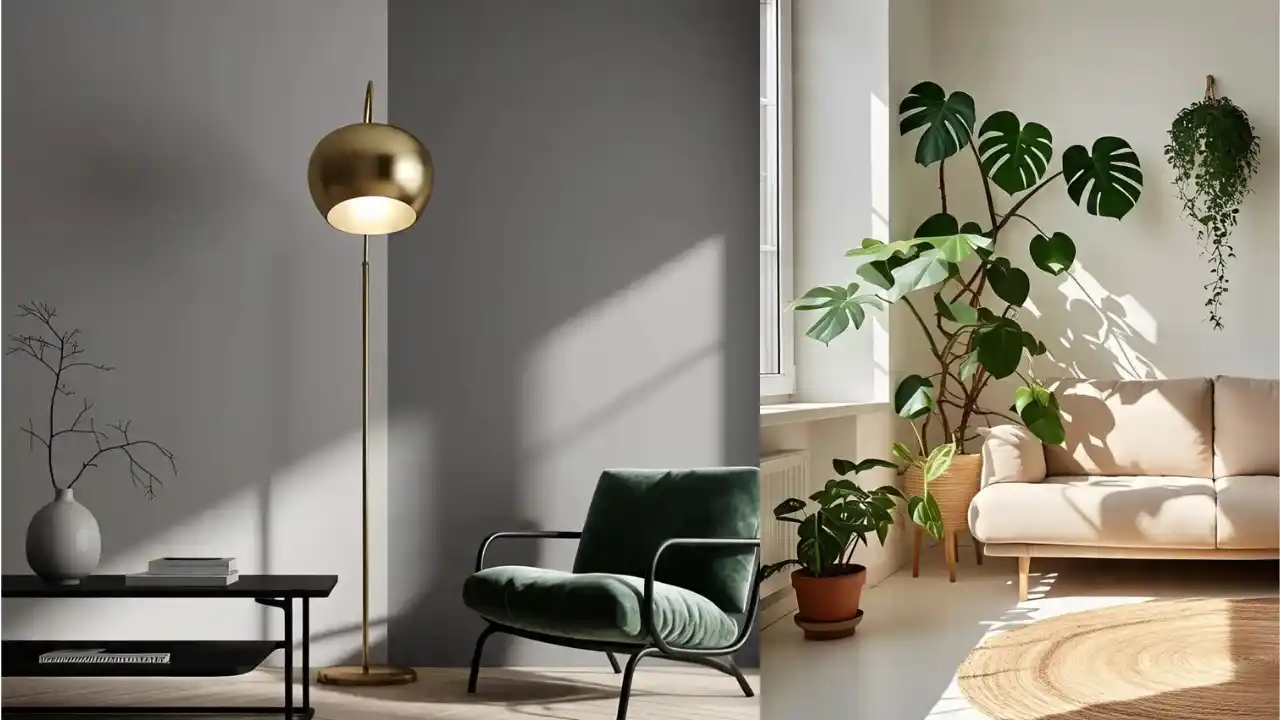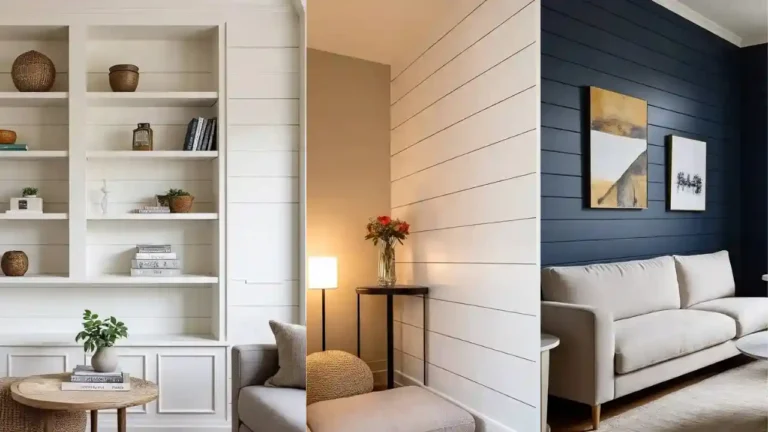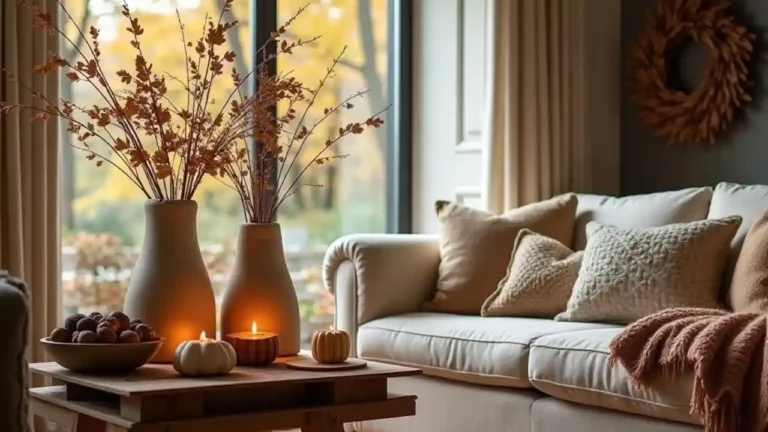Japandi Design in Small Living Rooms: Space-Saving Tips & Tricks
Combining the elegance of Japanese minimalism with the warmth of Scandinavian comfort, Japandi design is ideal for small living rooms. It focuses on clean lines, thoughtful simplicity, and functional beauty, and is perfect for maximizing every square foot. Whether you’re living in a tiny apartment or designing a compact home, Japandi-inspired interiors help you achieve serenity, space efficiency, and natural sophistication without clutter. You can explore more unique ideas with Nova Home Ideas.
Also Explore: 26 Vintage Boho Living Room Ideas For 2025
1. Choose Low-Profile Furniture to Maintain an Open, Airy Feel
Japandi interiors prioritize openness and flow, especially in small spaces. Select low-profile sofas, armchairs, and coffee tables that create visual breathing room. Furniture closer to the ground echoes traditional Japanese layouts while making ceilings appear taller and the room more spacious.
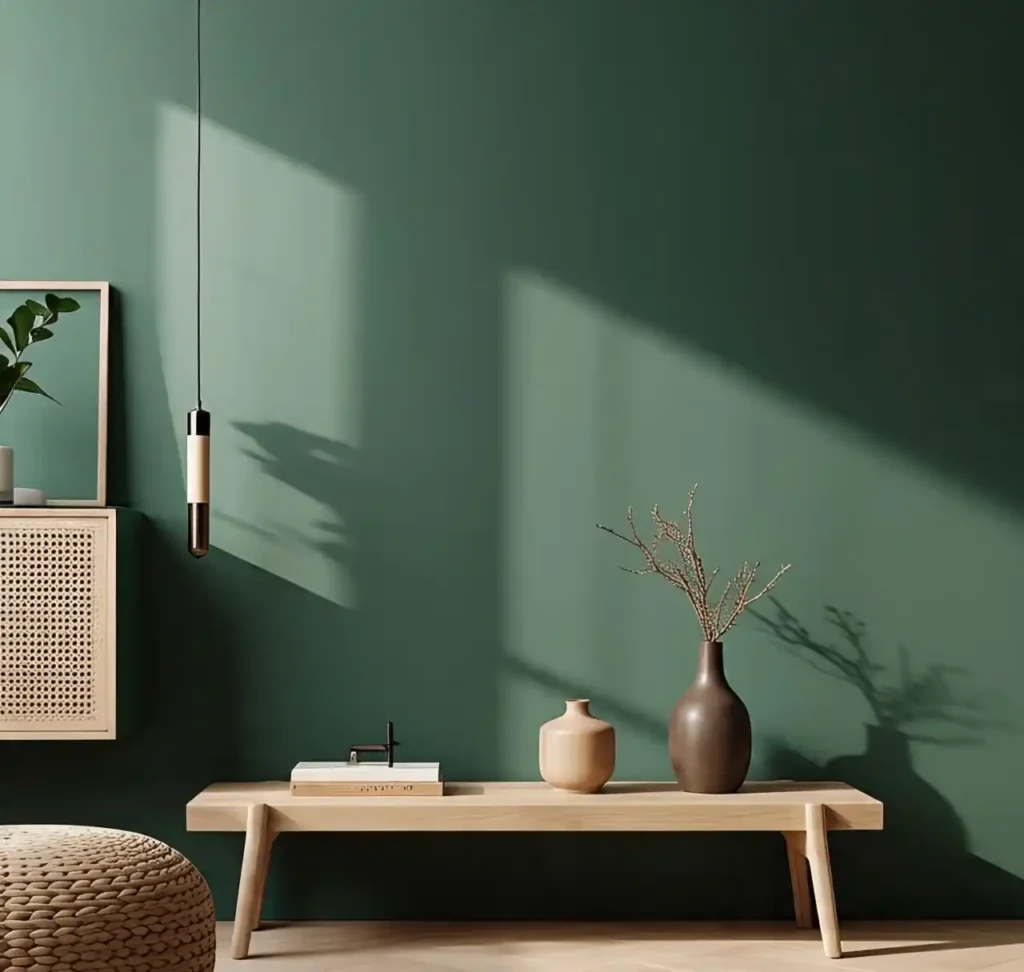
2. Embrace Natural Materials Like Wood, Linen, and Woven Accents
A hallmark of Japandi design is its connection to nature. Incorporate furniture and accessories made of light woods (like oak or ash), raw ceramics, stone, and textured fabrics. These elements ground the space while making it feel cozy, balanced, & intentional, even in small rooms.
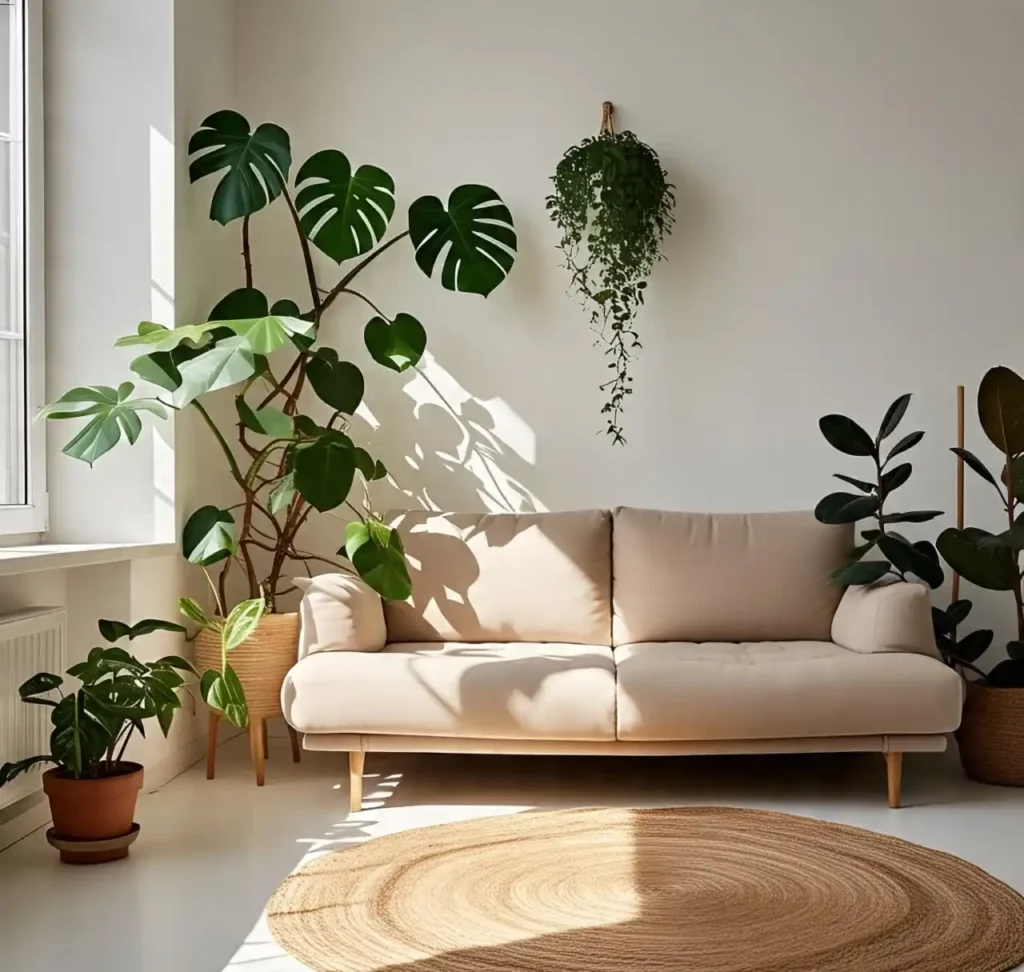
3. Stick to a Neutral, Muted Color Palette for Visual Calm
Color in Japandi design is never loud or overwhelming. Use soft tones like warm beige, off-white, dove gray, and pale taupe as your base. Add subtle depth with accents in muted greens, charcoal, or terracotta. This palette keeps the room feeling open and cohesive.
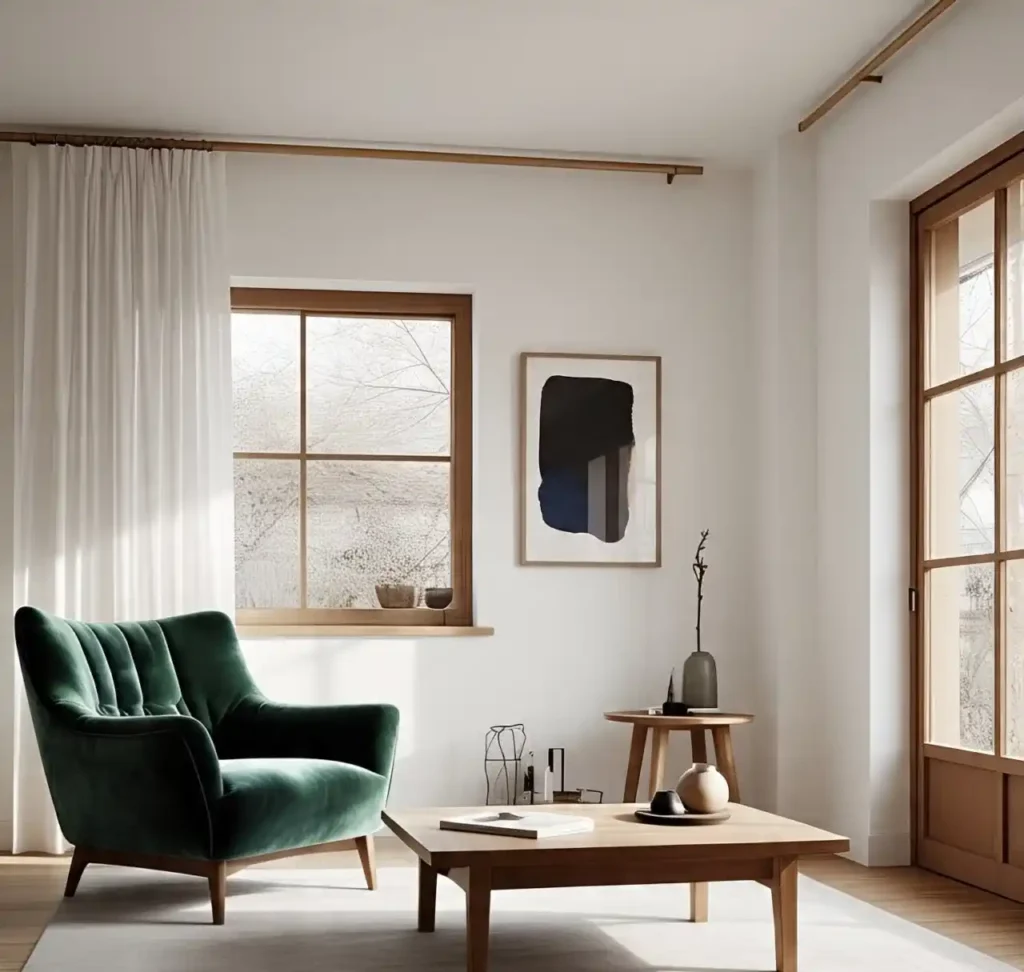
4. Use Multi-Functional Furniture That Saves Space and Adds Purpose
Japandi interiors are not just beautiful, they’re smart. Opt for furniture that serves more than one function: think storage ottomans, nesting tables, or bench seating with hidden compartments. These dual-purpose pieces help you maintain the minimalist look while storing essentials discreetly.

5. Bring in Nature With Plants and Organic Shapes
Small living rooms benefit greatly from greenery. Use potted plants, bonsai trees, or a vase of simple branches to bring life into the space. Choose natural, asymmetrical arrangements and handmade ceramic pots to reflect the wabi-sabi side of Japandi aesthetics.

6. Use Mirrors and Light to Visually Expand the Room
Strategically placed mirrors help bounce natural light and make a small room feel larger. Choose minimalist mirrors with clean lines or organic shapes to fit the Japandi theme. Natural light enhances wood textures and neutral colors, reinforcing the calm, open vibe.

7. Reduce Visual Clutter With Hidden or Minimal Storage Solutions
Japandi design emphasizes intentional living; everything in the room should have a purpose. Use low, streamlined storage units and wall-mounted shelves to keep essentials organized without creating visual noise. Closed storage keeps the space looking serene and uncluttered.
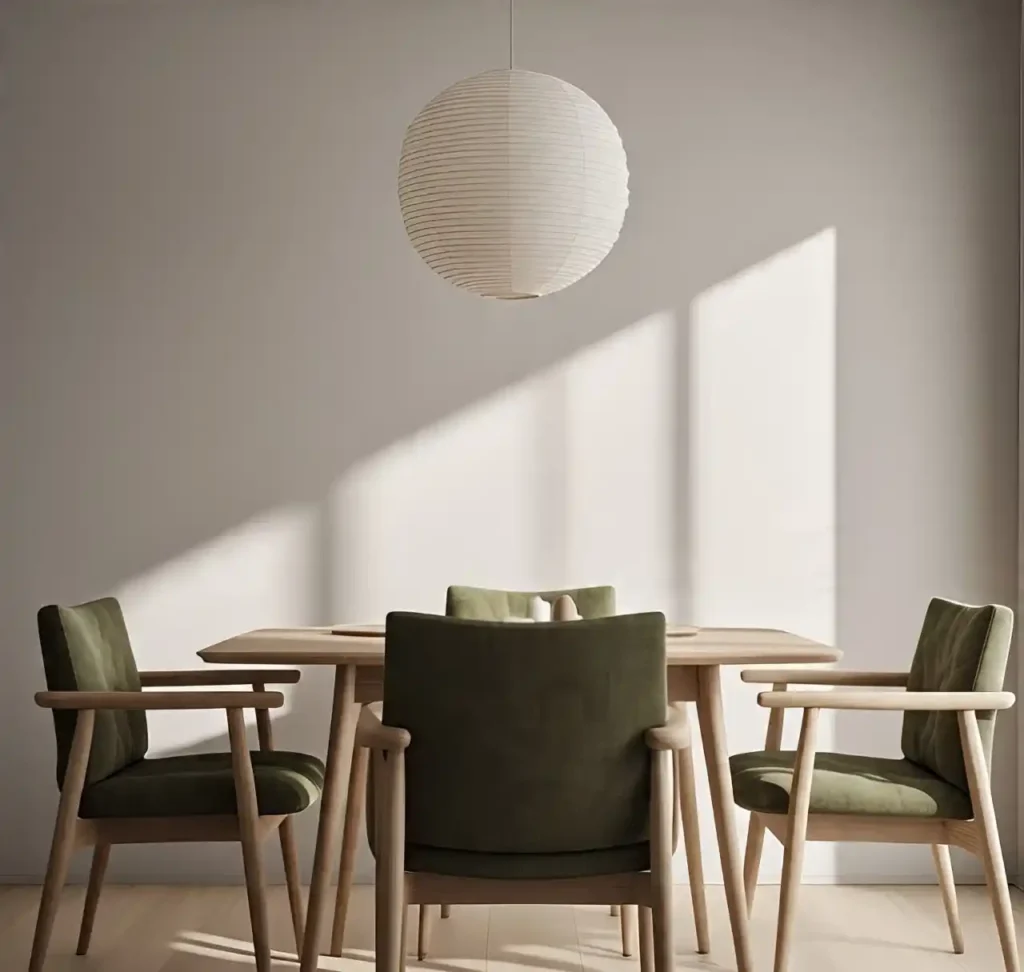
8. Leave Negative Space Intentionally to Promote Flow and Focus
Resist the urge to over-furnish. In Japandi interiors, less is more; each piece should serve a purpose and have room to breathe. Leaving empty space is part of the design philosophy, encouraging a sense of balance and mental clarity in small living rooms.
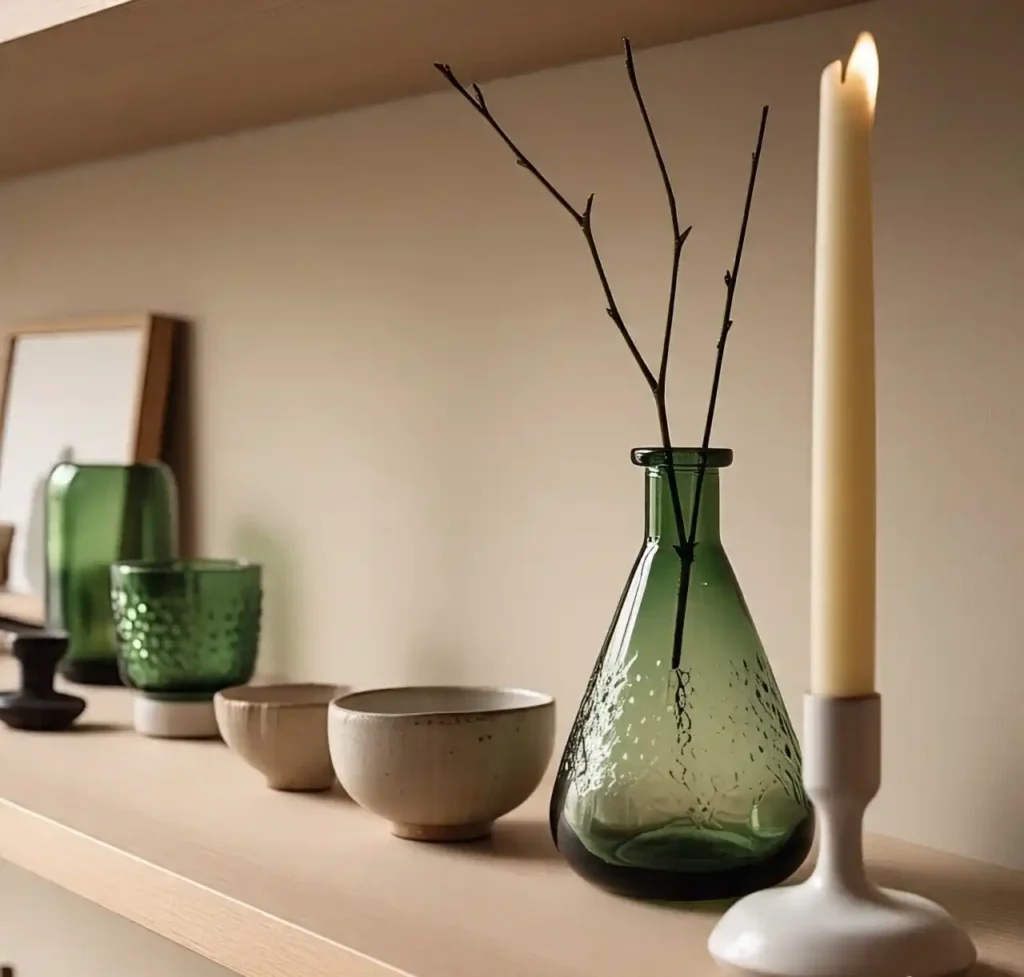
9. Select Sleek, Tapered-Leg Furniture to Keep Floors Visible
Furniture with open frames or raised legs allows light to travel under and around, preventing the room from feeling boxed in. This Scandinavian trait complements the grounded nature of Japanese aesthetics, creating a unified and airy look.
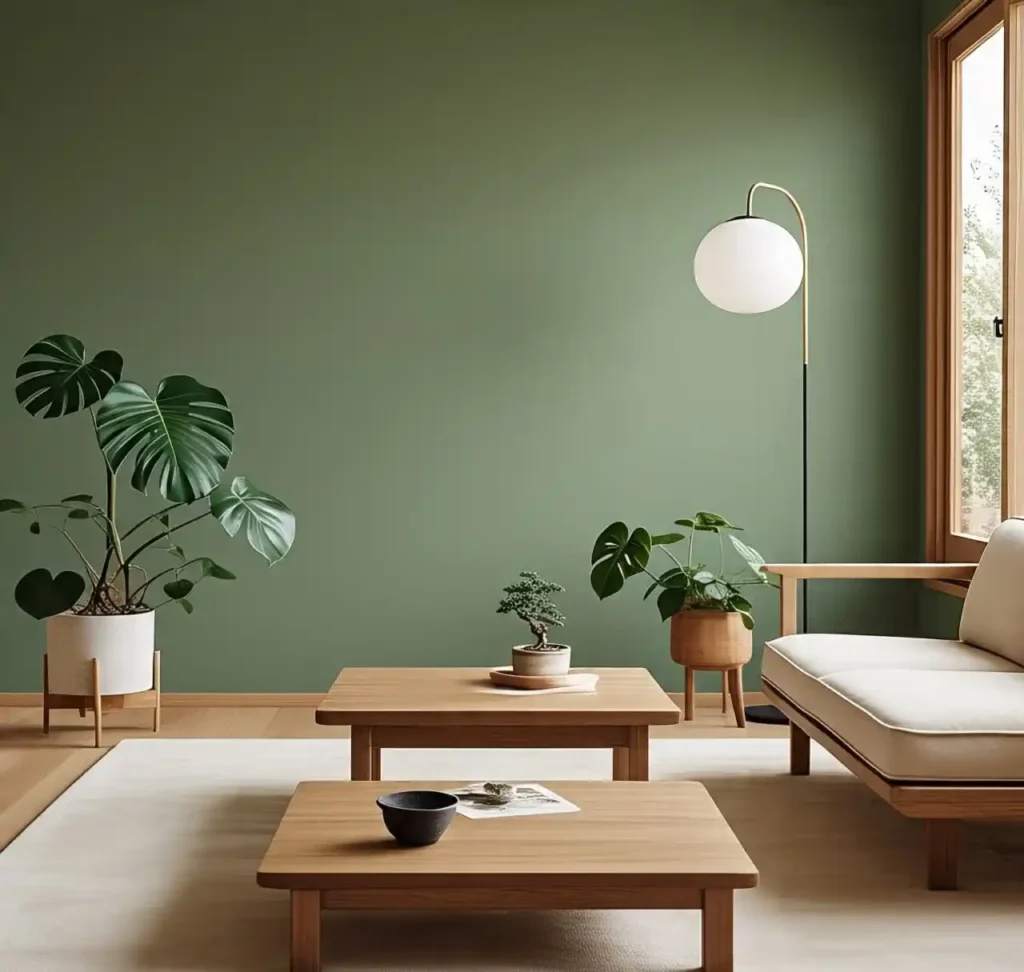
10. Add Texture With Subtle Contrasts in Fabric, Wood, and Decor
Even in minimalist designs, texture adds depth. Layer a linen throw over a wooden bench, or place a handmade wool rug on polished flooring. These quiet contrasts bring interest without overwhelming the limited square footage.
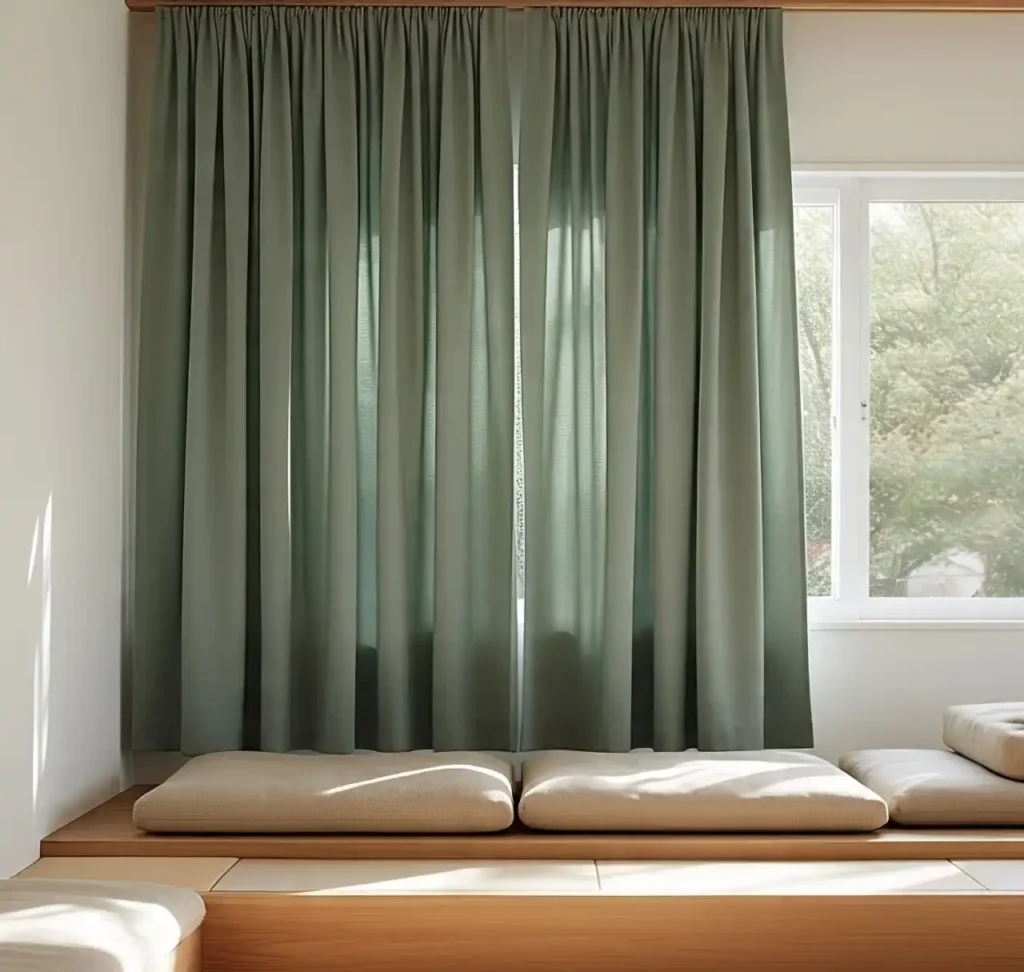
11. Use Warm, Diffused Lighting to Enhance Soft Ambience
Japandi living rooms favor layered lighting with a warm tone. Use rice paper lanterns, wall sconces, and floor lamps that diffuse light gently. This kind of illumination is perfect for small spaces, making them feel cozy instead of cramped.
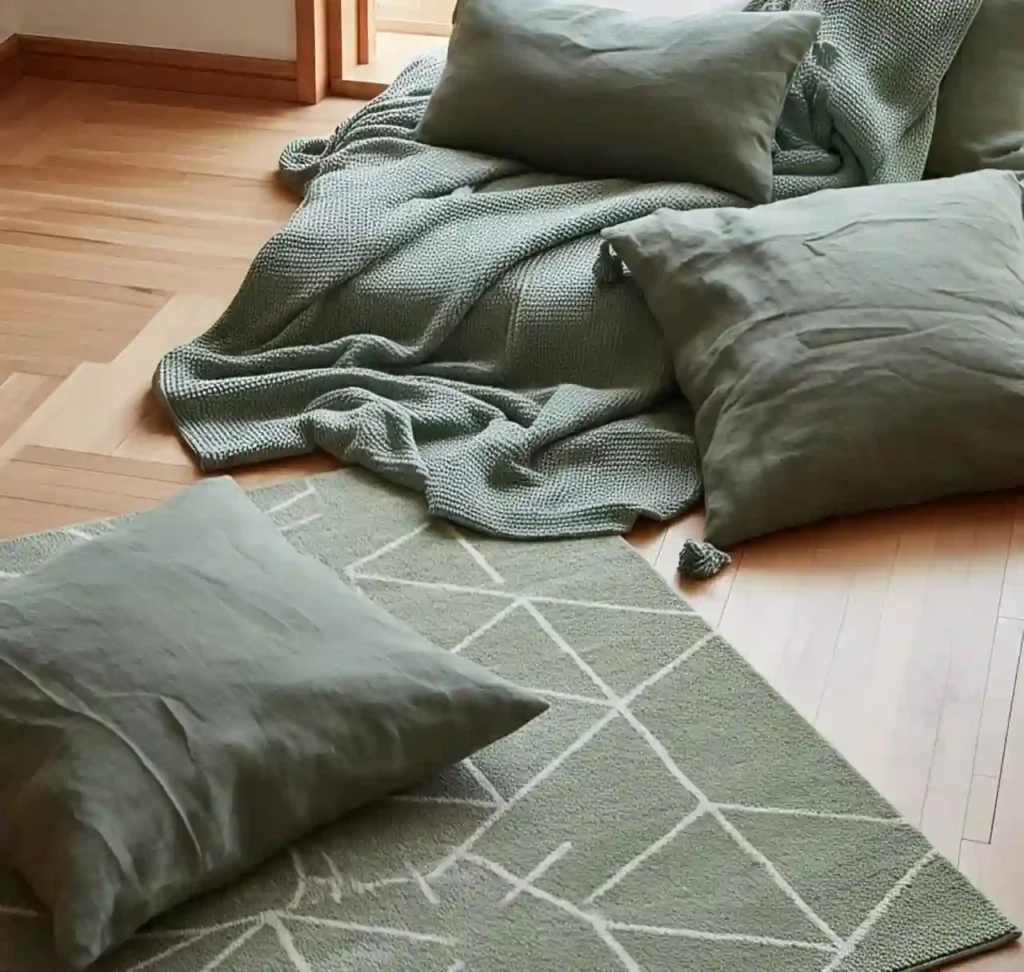
12. Incorporate Open Shelving With Curated Objects and Empty Space
Avoid overcrowded shelves. Instead, style open shelving with a few well-chosen items—a bowl, a book, a vase, spaced out with intention. This approach adds beauty and balance while keeping the room from feeling busy.

13. Use Minimalist Art or Calligraphy to Add Meaningful Decor
Japandi wall decor should reflect mindfulness. Select one or two meaningful prints, abstract paintings, or calligraphy scrolls to enhance your space. Keep frames simple and the artwork aligned with your neutral palette.
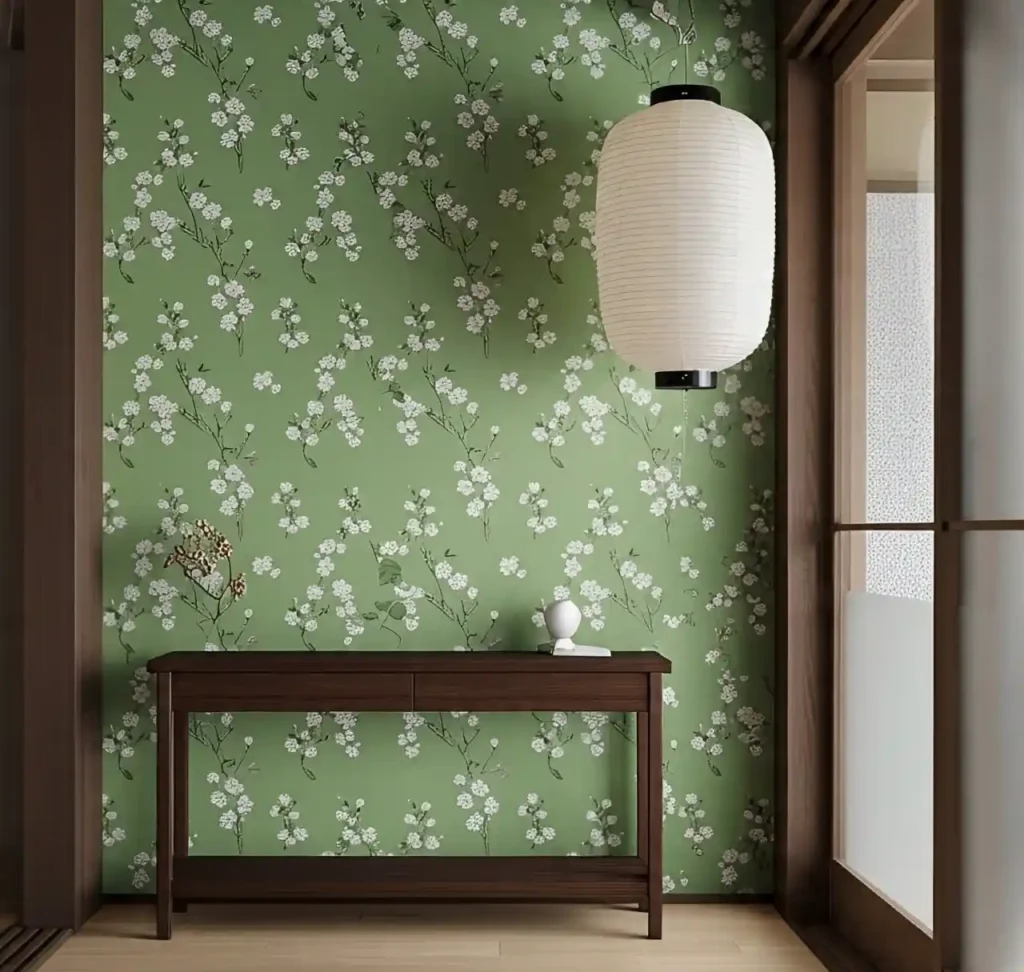
14. Choose Quality Over Quantity in Every Piece You Bring In
Japandi values craftsmanship and purpose. Rather than filling your room with trendy items, invest in fewer, better-quality pieces that offer longevity and meaning. This reduces clutter and ensures every object contributes to the aesthetic and function of your room.
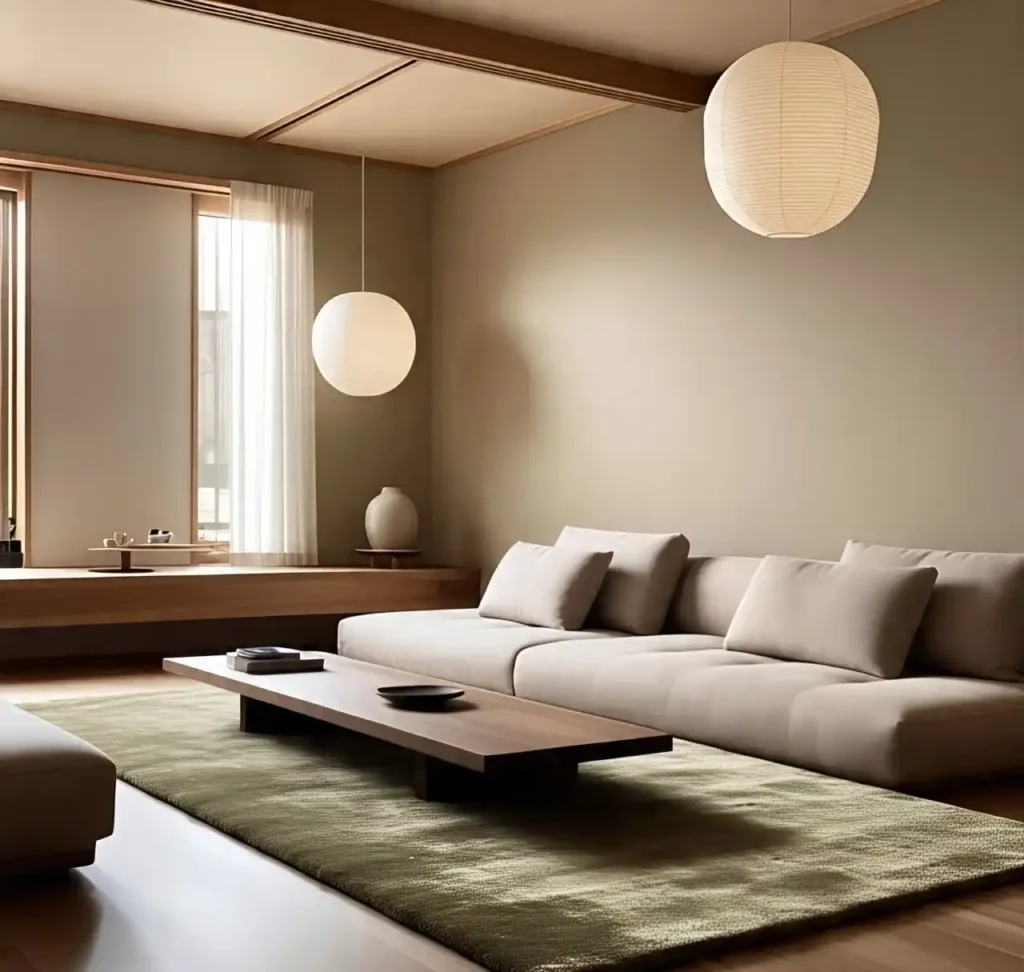
15. Let Imperfection Be Part of the Beauty With Wabi-Sabi Decor
Japandi style embraces wabi-sabi, the Japanese philosophy of beauty in imperfection. Use decor that shows age or texture: a cracked ceramic vase, a handwoven basket, or weathered wood. These items add soul to your small space without overwhelming it.
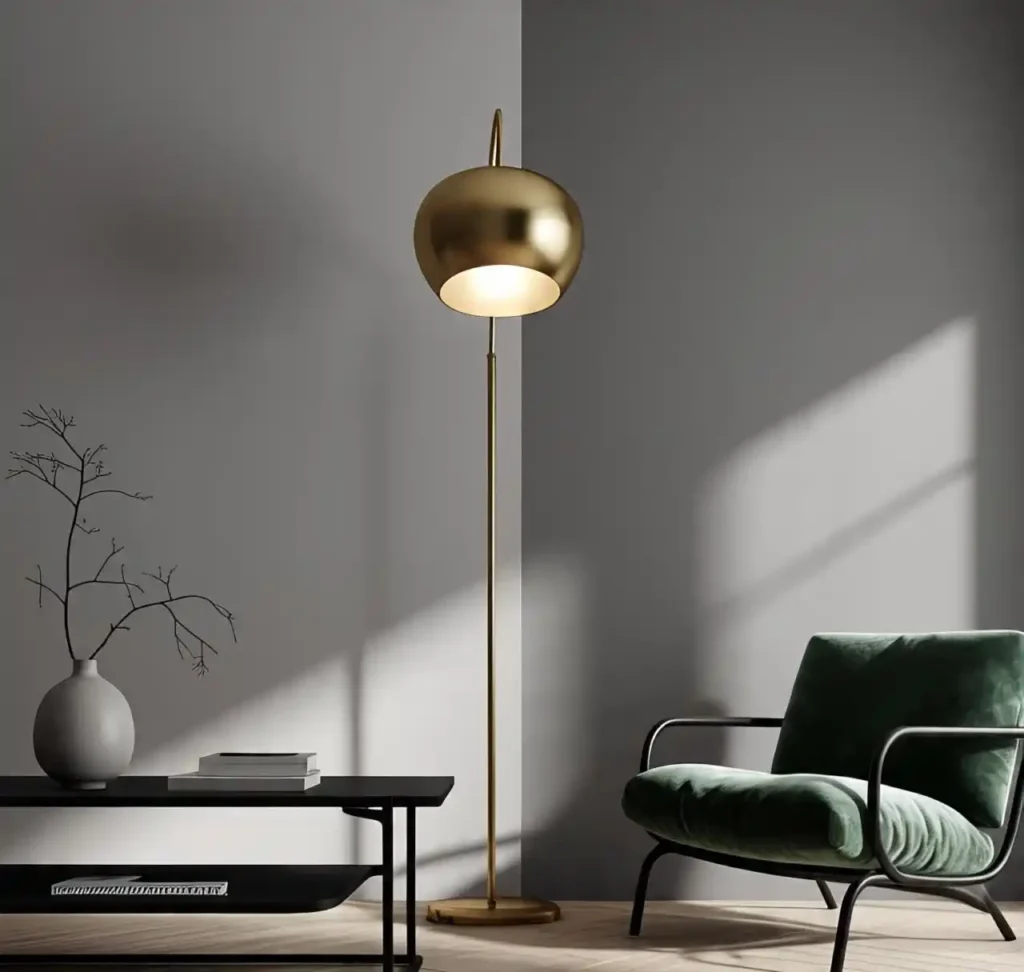
16. Keep Decor Flexible and Seasonal With Minimal Adjustments
In small rooms, changing the feel of a space doesn’t need a major overhaul. Rotate soft furnishings seasonally, like swapping throws or pillowcases, and update plants or tabletop decor to keep things fresh without adding clutter.
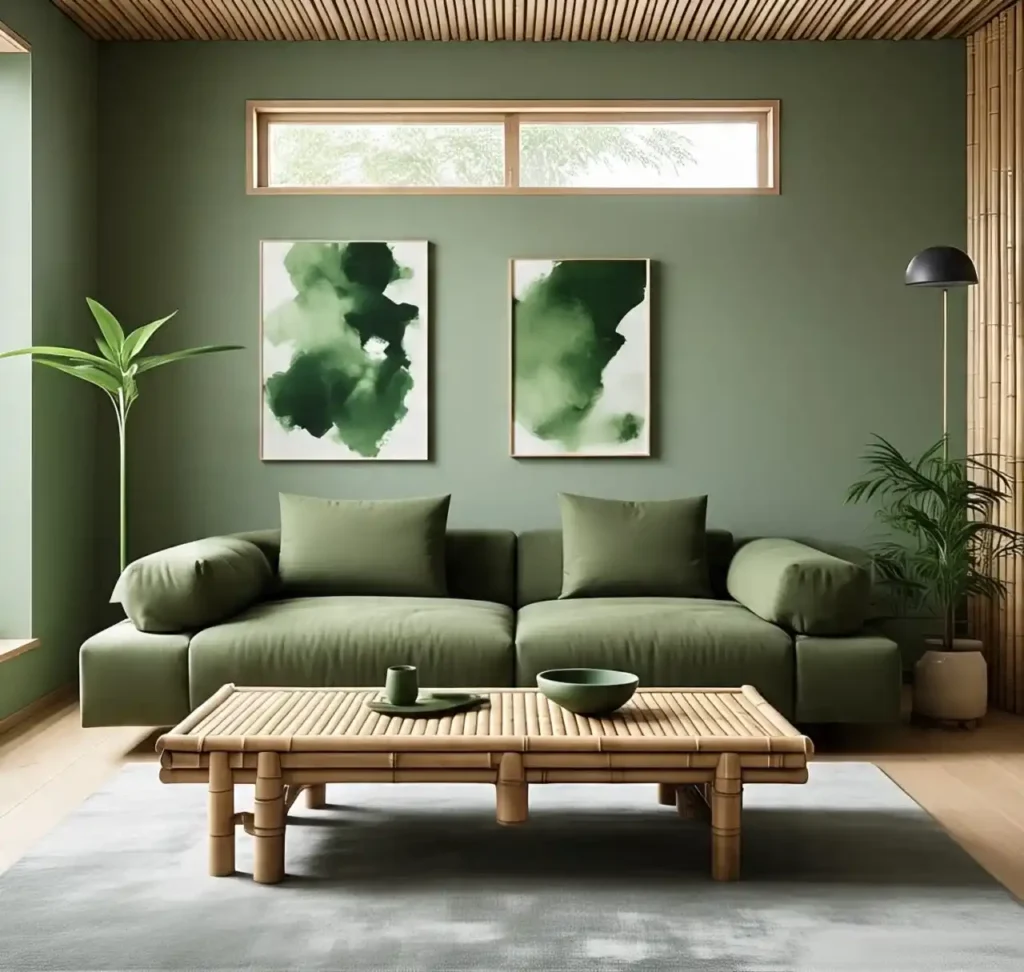
Final Thoughts: Japandi Design Makes Small Living Rooms Feel Bigger, Brighter, and Calmer
When every inch matters, Japandi design proves that thoughtful simplicity can still be beautiful. By combining Japanese minimalism and Scandinavian comfort, you create a small living room that’s not only space-saving but emotionally grounding. These 18 ideas show that calm, comfort, and functionality are entirely possible, even in compact homes.

